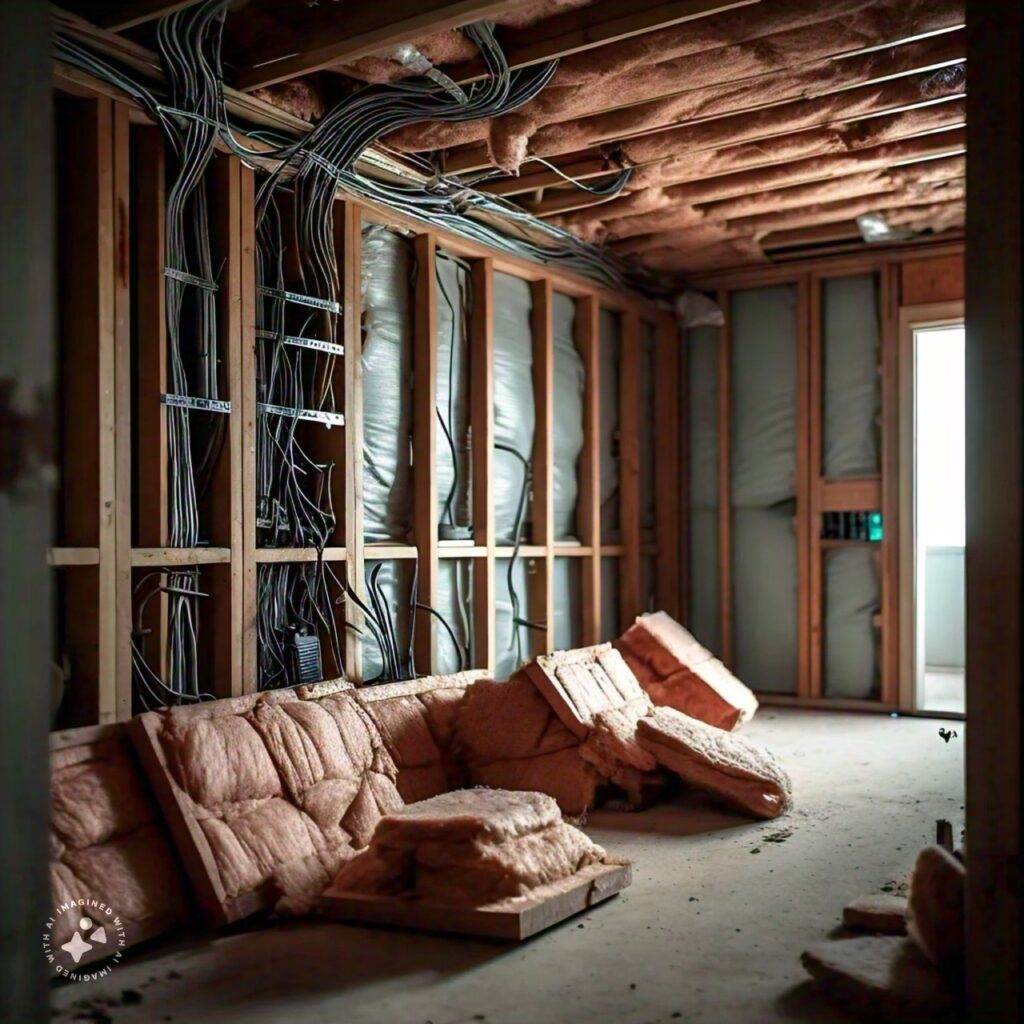Living in Singapore, where hygiene and cleanliness are paramount, dealing with a foul-smelling kitchen sink drain can be frustrating. Not only is it unpleasant, but it can also indicate underlying issues that need to be addressed promptly.
Here are 9 common reasons why your kitchen sink drain might emit unpleasant odors:
Kitchen Sink Drain Smells Bad- 9 Causes and Fixes
1. Accumulation of Food Debris
Food particles and grease can accumulate in your kitchen sink drain over time, creating a breeding ground for bacteria and causing foul smells. Singapore’s hot and humid climate accelerates the decomposition process, making it essential to clean your sink regularly.
To combat this issue, ensure that you scrape food scraps into the trash before rinsing dishes. Also, consider using a sink strainer to catch larger particles and prevent them from entering the drain. Regularly flushing the drain with hot water and a mixture of vinegar and baking soda can help break down grease and eliminate odors.
2. Clogged or Blocked Drain
A clogged or blocked drain can trap food particles, grease, and other debris, leading to stagnant water and foul odors. In Singapore, where high-rise living is common, drainage systems can be prone to blockages due to factors like improper disposal of cooking oil and food waste.
To address a clogged drain, you can try using a plunger to dislodge the blockage. If that doesn’t work, a mixture of equal parts baking soda and vinegar poured down the drain, followed by hot water, may help dissolve the obstruction. For stubborn blockages, it’s best to contact a professional plumber to avoid causing further damage to the plumbing system.
3. Sewer Gas Leaks
In some cases, foul smells emanating from the kitchen sink drain could indicate a more serious issue such as a sewer gas leak. Sewer gas contains toxic gases like methane and hydrogen sulfide, which can pose health risks if inhaled.
If you detect a rotten egg or sulfur-like smell coming from your kitchen sink drain, it’s crucial to address the issue promptly. Sewer gas leaks can be caused by damaged or deteriorated plumbing pipes, improper venting, or dried-out drain traps.
To prevent sewer gas leaks, ensure that all plumbing fixtures are properly installed and maintained. Regularly pour water down infrequently used drains to keep the trap filled and prevent sewer gases from entering your home.
4. Mold and Mildew Growth
Singapore’s humid climate provides the perfect conditions for mold and mildew growth, which can thrive in damp environments like kitchen sink drains. These fungi not only cause unpleasant odors but can also pose health risks, especially for individuals with respiratory issues.
To tackle mold and mildew growth in your kitchen sink drain, regularly clean and disinfect the drain using a mixture of bleach and water or a commercial mold remover. Scrub the drain and surrounding areas thoroughly to remove any visible signs of mold or mildew. Additionally, ensure proper ventilation in your kitchen to reduce moisture levels and discourage mold growth.
5. Decomposing Organic Matter
Organic matter such as hair, soap scum, and organic debris can accumulate in kitchen sink drains, leading to decomposition and foul odors. In Singapore, where households may have multiple occupants, the accumulation of organic matter can occur more rapidly.
To prevent odors caused by decomposing organic matter, consider installing a drain cover or hair catcher to trap hair and other debris before they enter the drain. Regularly clean the drain cover and remove any buildup of hair and debris. Using enzymatic drain cleaners can also help break down organic matter and eliminate odors effectively.
6. Insufficient Drain Ventilation
Inadequate ventilation in kitchen sink drains can trap odors and gases, leading to foul smells emanating from the drain. This issue is particularly common in older buildings or poorly designed plumbing systems.
To improve drainage ventilation and prevent odors, ensure that vent pipes are properly installed and free from blockages or damage. Vent pipes allow sewer gases to escape outdoors, preventing them from entering your home and causing unpleasant smells. If you suspect that your drain ventilation system is inadequate, consider consulting a professional plumber to assess and address the issue.
7. Hard Water Deposits

In Singapore, where hard water is prevalent, mineral deposits can accumulate in kitchen sink drains over time, leading to blockages and foul odors. Hard water contains high levels of minerals like calcium and magnesium, which can form stubborn deposits on the walls of pipes and drains.
To address hard water deposits and prevent foul smells, consider using a water softener or installing a filtration system to reduce the mineral content in your tap water. Regularly cleaning your kitchen sink drain with a mixture of vinegar and water can also help dissolve mineral buildup and eliminate odors. Additionally, investing in a water softening showerhead can reduce mineral deposits in drains and plumbing fixtures throughout your home.
8. Improper Waste Disposal

Improper disposal of waste materials such as coffee grounds, eggshells, and cooking oil can contribute to foul odors in kitchen sink drains. These items can accumulate in drains, decompose, and release unpleasant smells over time.
To prevent odors caused by improper waste disposal, avoid rinsing large amounts of food waste down the drain and dispose of solid waste in the trash instead. Used cooking oil should be collected in a container and disposed of properly, rather than poured down the drain where it can congeal and cause blockages.
Educating household members about proper waste disposal practices can help prevent foul smells and maintain a clean kitchen environment. Encourage everyone to scrape food scraps into the trash and dispose of cooking oil responsibly to minimize odors in the kitchen sink drain.
9. Infrequent Cleaning

Neglecting to clean your kitchen sink drain regularly can lead to the accumulation of dirt, grime, and bacteria, resulting in foul odors. In busy households in Singapore, where time is often limited, it’s easy for cleaning tasks to be overlooked.
To prevent odors caused by infrequent cleaning, incorporate drain maintenance into your regular cleaning routine. Use a drain brush or pipe cleaner to remove debris and buildup from the drain and surrounding areas. Pouring boiling water down the drain once a week can also help flush away accumulated grime and bacteria, keeping your kitchen sink drain fresh and odor-free.
Signs to Detect Kitchen Sink Drain Odor Issues
Detecting kitchen sink drain odor issues early can help prevent further complications and maintain a fresh and hygienic environment in your Singapore home. Here are some signs to look out for:
1. Foul Odors
The most obvious sign of a kitchen sink drain odor issue is unpleasant smells emanating from the drain. If you notice a persistent foul odor, especially when running water or using the sink, it’s likely there’s a problem that needs to be addressed.
2. Slow Drainage
A slow-draining sink can indicate a blockage in the drain pipe, allowing food particles, grease, and other debris to accumulate and decompose, leading to foul odors. If you notice that water is draining slowly or backing up in the sink, it’s essential to investigate the cause promptly.
3. Gurgling Sounds
Gurgling or bubbling noises coming from the drain when water is draining can be a sign of air trapped in the pipes, indicating a ventilation issue. Improper ventilation can lead to sewer gas buildup and foul odors escaping through the drain.
4. Fruit Fly Infestation
Fruit flies are attracted to decomposing organic matter, making them a common indicator of a kitchen sink drain odor problem. If you notice an increase in fruit fly activity around your sink area, it could be a sign that there’s organic material accumulating in the drain, causing foul odors.
5. Visible Buildup or Mold Growth
Inspecting the area around the drain for visible buildup of grime, slime, or mold can help identify odor issues. Mold and mildew thrive in damp environments and can contribute to foul smells emanating from the drain. If you notice any signs of mold growth or slime around the drain, it’s essential to address the issue promptly.
6. Recurring Odors Despite Cleaning
If you regularly clean your kitchen sink drain but continue to experience foul odors, it could indicate an underlying issue that requires professional attention. Persistent odors may be caused by factors such as damaged pipes, sewer gas leaks, or insufficient ventilation, which need to be addressed by a qualified plumber.
5 Myths About Kitchen Sink Drain Odors Debunked
Misconceptions about kitchen sink drain odors can lead to ineffective solutions and frustration. Here are five common myths debunked:
1. Myth: Bleach Eliminates All Odors
While bleach can help disinfect and remove some odors temporarily, it’s not always effective at eliminating the root cause of kitchen sink drain odors. Bleach may mask odors temporarily, but it doesn’t address underlying issues such as organic buildup or sewer gas leaks.
2. Myth: Lemon Rinds Clean Drains
Some believe that tossing lemon rinds down the drain can freshen and clean it. However, while lemon rinds may provide a temporary pleasant scent, they can contribute to blockages over time. The acidic nature of lemon can corrode certain materials in the plumbing system and worsen odor problems.
3. Myth: Hot Water Prevents Clogs
Pouring boiling water down the drain is thought to prevent clogs by melting grease and flushing away debris. While hot water can help temporarily clear minor blockages, it’s not a long-term solution for preventing clogs or eliminating odors caused by organic buildup or sewer gas leaks.
4. Myth: Drain Cleaners Are Safe and Effective
Commercial drain cleaners are widely believed to be a quick and easy fix for kitchen sink drain odors. However, many drain cleaners contain harsh chemicals that can damage pipes and harm the environment. Additionally, they may only provide temporary relief and fail to address the underlying cause of odors.
5. Myth: Odors Mean the Drain Is Clean
Some people believe that foul odors indicate a clean drain because the smell is caused by cleaning products. However, unpleasant odors usually indicate the presence of organic matter, grease buildup, or sewer gas leaks, which require thorough cleaning and maintenance to eliminate.

